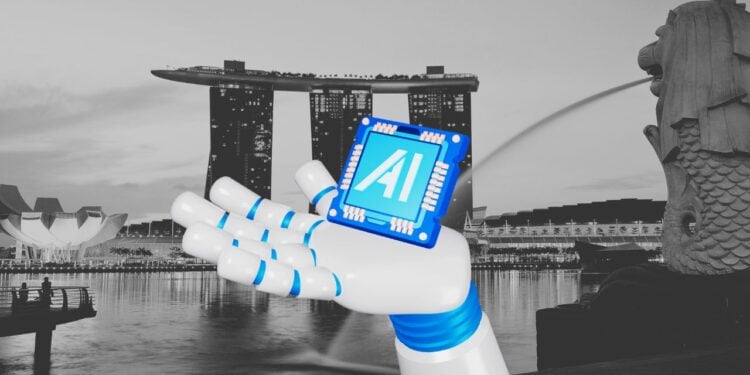As the digital transformation of the global workforce accelerates, Singapore’s workers are setting a precedent in AI skill adoption, outpacing the world in preparing for an AI-driven future. LinkedIn’s latest Future of Work report reveals a surge in AI proficiency among professionals, underscoring the imminent shift in job roles and the increasing importance of blending technical know-how with soft skills. This trend, reflective of the evolving nature of work, emphasizes the need for professionals worldwide to adapt and evolve more quickly in the face of technological advancements.
The report, which analyzed data from 25 countries, found that Singapore has the highest “diffusion rate” of AI skills, with the share of members adding AI skills to their LinkedIn profiles growing 20 times more than reported in January 2016. This is significantly higher than the global average of eight times, according to CNBC.
The top five countries with the highest rates of AI skills diffusion are:
- Singapore (20x)
- Finland (16x)
- Ireland (15x)
- India (14x)
- Canada (13x)
Pooja Chhabria, career expert and Asia-Pacific head of editorial at LinkedIn, attributed Singapore’s rapid adoption of AI skills to the country’s robust digital infrastructure, strong intellectual property protection framework, and a thriving ecosystem of venture capital firms and angel investors.
The LinkedIn report also highlighted the five fastest-growing AI-related skills added to member profiles, all of which reflect the emergence of generative AI in the workforce. These skills include:
- Question-answering — grew by 332%,
- Classification — grew by 43%,
- Recommender Systems — grew by 40%,
- Computer Vision — grew by 32%,
- Natural Language Processing (NLP) — grew by 19%
Generative AI technologies, which can create text, images, and other content in response to worker prompts, have sparked new fears of jobs being replaced by technology. A Goldman Sachs report found that 300 million jobs worldwide could be affected by AI and automation, including office and administrative support roles.
AI technologies have the potential to automate and augment various tasks, allowing professionals to focus on more important aspects of their jobs. However, the rise of AI also underscores the importance of soft skills, such as creative thinking, leadership, communication, and ethical decision-making. As AI becomes more integrated into the workforce, professionals will need to effectively communicate with both technical and non-technical audiences and make informed decisions about when to leverage AI capabilities.



 Dr. Gleb Tsipursky – The Office Whisperer
Dr. Gleb Tsipursky – The Office Whisperer Nirit Cohen – WorkFutures
Nirit Cohen – WorkFutures Angela Howard – Culture Expert
Angela Howard – Culture Expert Drew Jones – Design & Innovation
Drew Jones – Design & Innovation Jonathan Price – CRE & Flex Expert
Jonathan Price – CRE & Flex Expert











